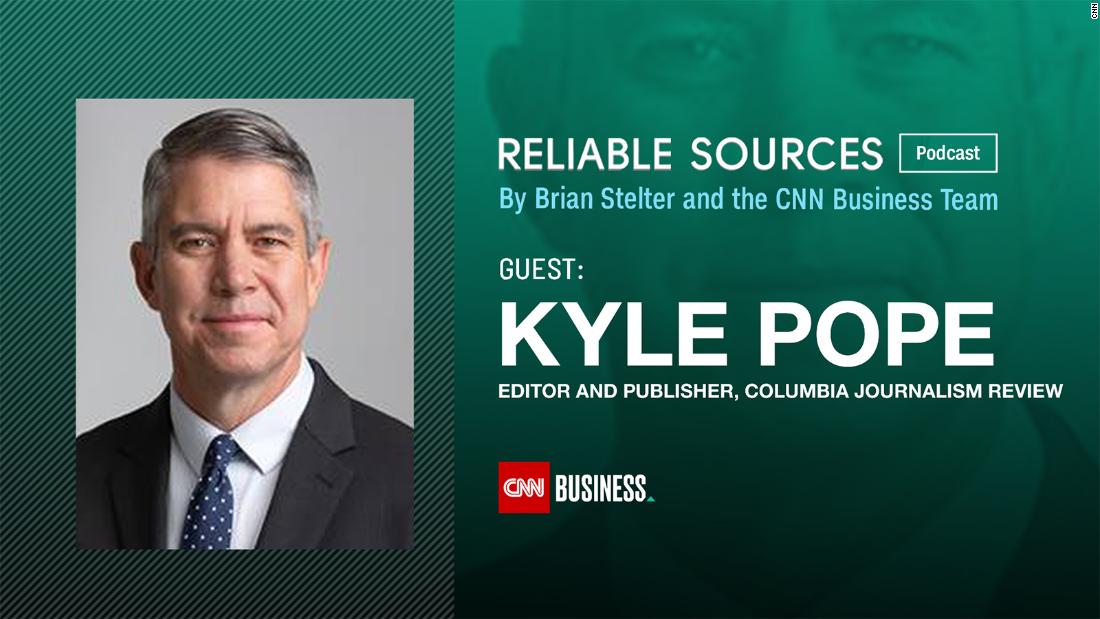
What is it? An initiative to provide focused coverage of the climate crisis in print, on air and online.
Participating news outlets are running stories in the run-up to the UN Climate Action Summit on September 23. The organizers hope to keep it going well past this month.
One of the goals is to get people in newsrooms "to start thinking" about how to cover the subject in a sustained way, veteran journalist Kyle Pope said on this week's "Reliable Sources" podcast.
Pope is the editor and publisher of the Columbia Journalism Review, which spearheaded the initiative along with Mark Hertsgaard of The Nation magazine earlier this year. The Guardian came on board right away, and other newsrooms have been signing on ever since.
"The network represents every corner of the media including TV networks (CBS News, Al Jazeera), newspapers (El País, the Toronto Star), digital players (BuzzFeed, HuffPost, Vox), wire services (Getty Images, Bloomberg), magazines (Nature, Scientific American), and dozens of podcasts, local publishers, radio and TV stations," The Guardian reported Sunday.
Pope said the coalition seeks to marshal news coverage to "match how big this story is."
"We're not telling people what to write," he said. "We're not telling them who they should quote. We're not telling them what their story is... All we know is that there are climate stories that you should be devoting more of your attention to."
Scientists and researchers have long been critical of major news organizations for placing climate on the back burner. The newsrooms with specialists covering the subject have stood out because so many other outlets' coverage has been hit-and-miss.
But this has been changing in recent years, with notable expansions at The New York Times, CNN and other major newsrooms.
Pope said he has seen "amazing progress" — citing the recent night full of climate-focused town halls with Democratic presidential candidates on CNN, a marked change from 2016, when the subject barely came up in any of the general election debates.
But Pope said this trend needs to continue, especially at the local level, where "the climate conversation is really delayed." On the bright side, he said local meteorologists have played a key role in infusing climate change context into the daily news.
When enlisting newsrooms to participate in this week's focused coverage, Pope said editors and executives brought up a number of concerns, including a fear of being seen as activists.
"I just thought that, you know, journalism history is full of times when reporters tackled really controversial, thorny topics," Pope said.
The coalition will be publishing examples of work from participating news outlets on a dedicated website.
In many cases, Pope said, this project "kind of gave people an excuse to do what they wanted to do anyway." He said he hopes the news outlets give each other story ideas and moral support.
An early example of the coalition's breadth came from The Spinoff, a New Zealand online magazine, which published a story on Sunday about the implications of climate change at two ends of the country.
In the US state of Vermont, meantime, the nonprofit site VTDigger said it would be exploring "the many changes Vermont is already experiencing due to climate change, and look at how these trends could transform the state, from who's living here to which pests inhabit our farms and forests."
Bagikan Berita Ini














0 Response to "Why you're seeing so much news coverage of the climate crisis this month"
Post a Comment